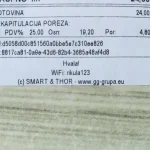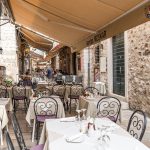As Ana Blaskovic/Poslovni Dnevnik writes, the pace of economic recovery could vary very significantly between countries, said the Croatian National Bank’s chief economist Vedran Sosic in Rovinj at the 9th meeting of the region’s governors, primarily due to their different economic structures and aid effectiveness. The state has helped companies out financially and with various job preservation measures, but now it’s crucial that we work to reduce the number of zombie companies, and the speed of recovery will also depend on how much households will spend on ”forced” accumulated savings due to the global crisis.
Vedran Sosic gave a presentation entitled “Post-Covid Syndrome in the Economy and Financial System: How do we Deal with It?” explaining that the current crisis will spur some structural changes in numerous economies, and that economic policies will play a key role in preserving growth potential, especially through support for companies and workers in the most affected industries.
The business of companies has been hit by restrictions, epidemiological measures have brought with them higher costs, and at the same time their demand has decreased, supply chains have been disrupted and general insecurity has increased. While strong fiscal support has helped businesses, the question now is of the optimal rate of the withdrawal of that support.
“These subsidies have reduced the insolvency rates of companies even below the levels normal for good times, which, among other things, has enabled an increase in the number of zombie companies that are squeezing out healthy companies and the damage is growing in the long run. Reforms aimed at reducing zombification are vital,” Vedran Sosic said.
In the ongoing coronavirus crisis, the savings rate rose with a simultaneous decline in investment. “If households don’t spend their accumulated additional savings, it could negatively affect the speed of recovery,” the CNB chief economist said, adding that the pandemic and restrictive measures limited private consumption, while state aid compensated for part of the loss of income, and high levels of uncertainty generally reduced the propensity to spend.
“All this has led to ”forced” savings in addition to the precautionary savings common during times of crisis. Although it isn’t possible to determine exactly who saved the most during the crisis, an increase in savings was probably pronounced among those with higher incomes who will probably not significantly increase their spending during the recovery,” said Vedran Sosic.
He also referred to the residential property market, saying that it had shown a level of resilience, meaning that the price levels more or less remained the same throughout the crisis. Here in Croatia, residential real estate prices rose by 7.7 percent last year. At the same time, due to new trends related directly to the pandemic, such as increased work from home and an increase in online shopping, prices for commercial real estate have fallen.
For more, follow our dedicated business section.










